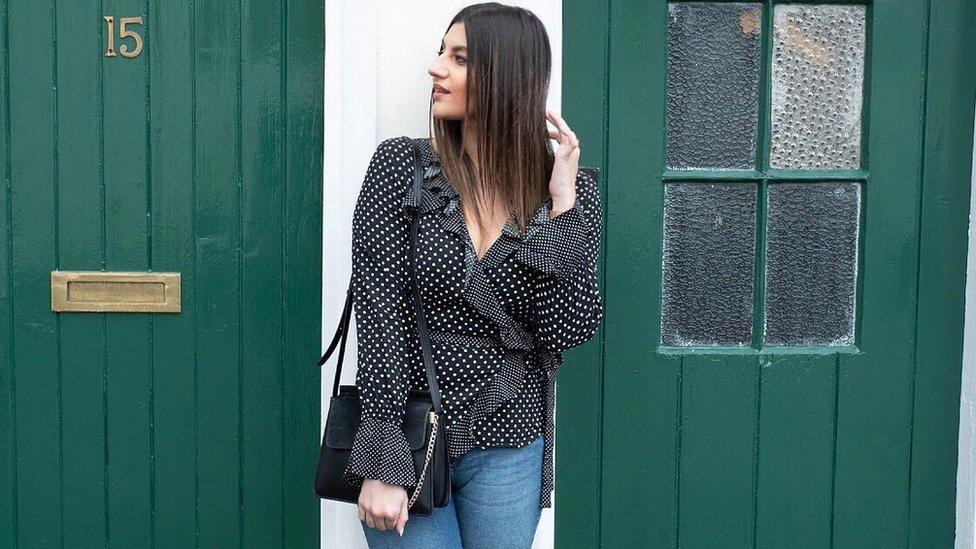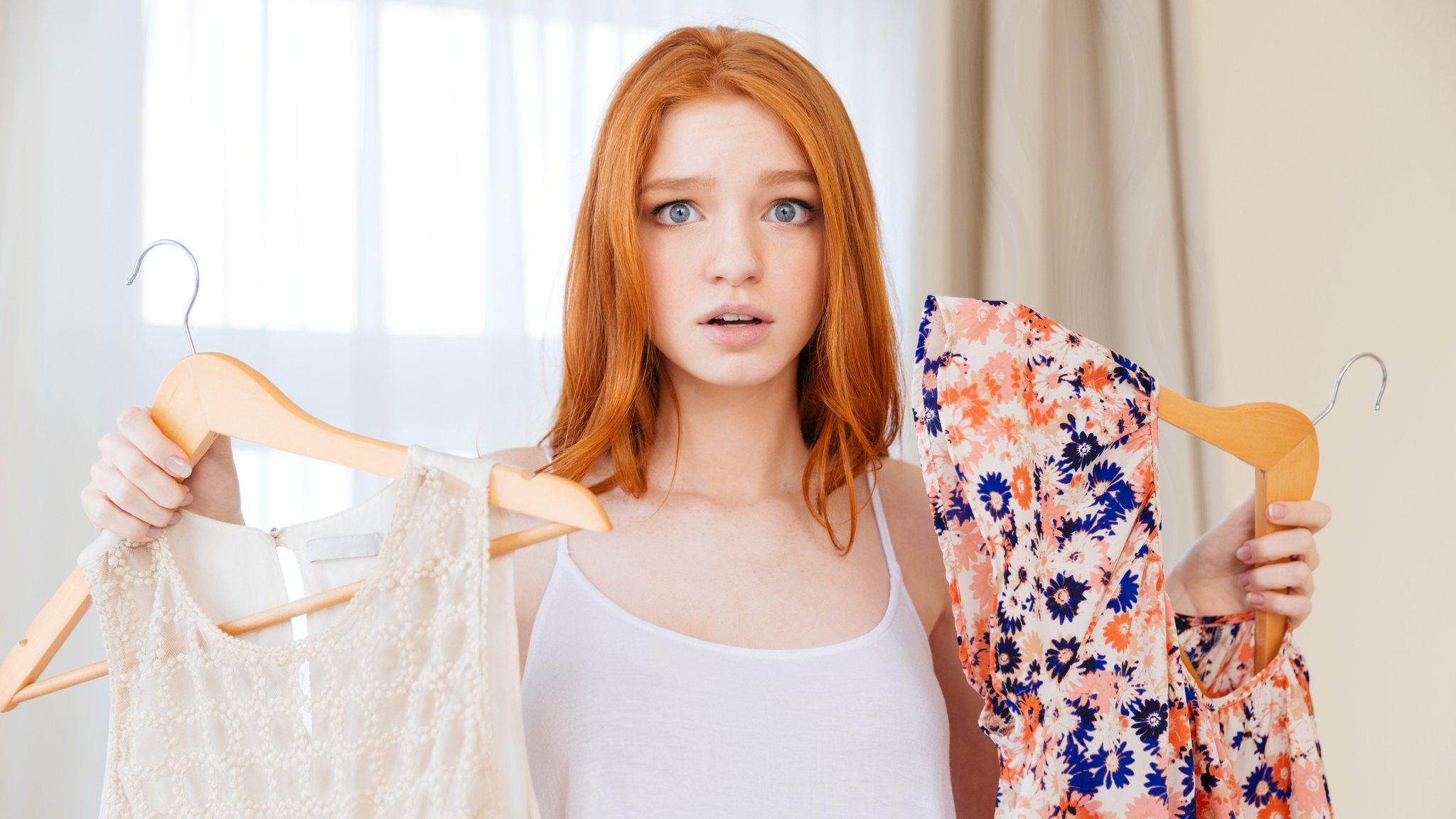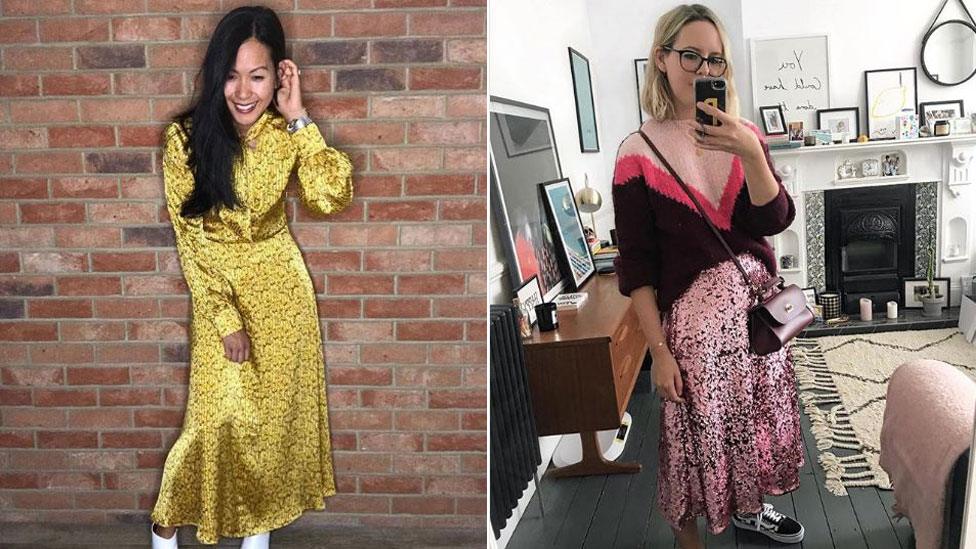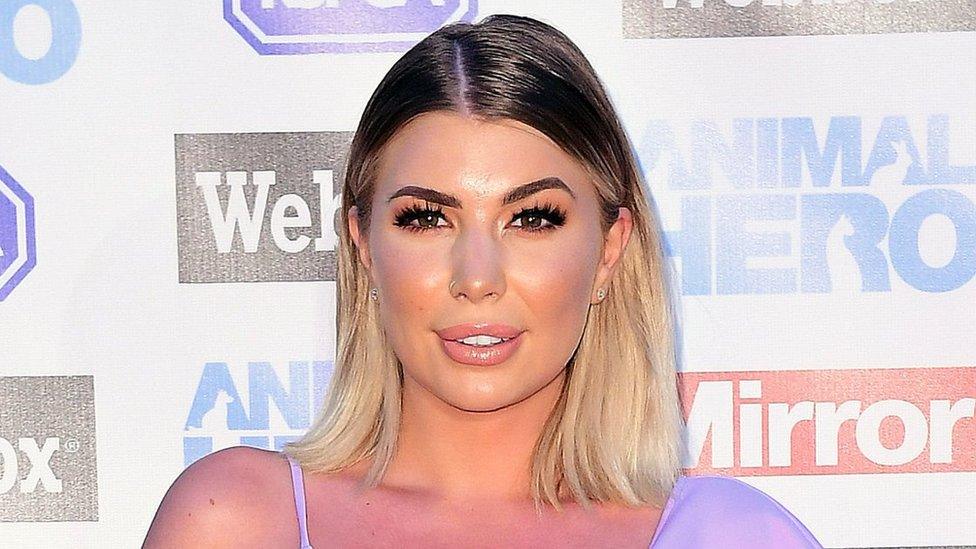How Instagram influencers would tackle the retail crisis
- Published

Jasmine Jonas has more than 20,000 followers on Instagram
We all know that it's been a tough year for fashion retailers on the High Street, but online it's been quite a different story.
Internet-based "fast-fashion" retailers such as Boohoo, In The Style and Missguided have - by and large - been growing at a clip as they target younger consumers seeking the latest trends at rock-bottom prices.
Key to their success has been the social media platform Instagram, which millennial consumers increasingly use to find fashion inspiration and which retailers view as a vital marketing tool.
It's left traditional bricks-and-mortar operators struggling to seem relevant.
But top Instagram influencers, who get paid to promote fashion online, told us it didn't have to be that way and that High Street players could still thrive with the right strategy.
So what do they think could be done to help our struggling retailers?
1. 'Think carefully about what makes you different'
Allow Instagram content?
This article contains content provided by Instagram. We ask for your permission before anything is loaded, as they may be using cookies and other technologies. You may want to read Meta’s Instagram cookie policy, external and privacy policy, external before accepting. To view this content choose ‘accept and continue’.
Jasmine Jonas, a British influencer with more than 20,000 followers on Instagram, rarely shops on the High Street anymore which she thinks is "sad".
"The biggest thing the High Street is up against is convenience," she says. "There's a lot more discounting online too."
She gives the example of fast-fashion site Nasty Gal (owned by Boohoo), which was recently offering 50% off everything on its website via a discount code.
"You could be in a store that sells exactly the same thing, but if you can get it online half price and delivered to your door the next day then it's obvious who you're going to choose."
To compete she thinks High Street retailers need to offer new incentives to get people into their stores. That could mean extending their opening hours more than just once a week to accommodate our busy lives, or making visits to their shops more of an experience.
Why shopping on the High Street needs to become an 'experience'
"When I was growing up, going to the shops was an experience in itself but it seems that essence has died," Ms Jonas says.
"So High Street retailers need to think carefully about what they can do to be different. They could hold events in store like Topshop, which sometimes has a DJ or a prosecco bar. And there is loads of stuff where bloggers will do their top picks or give talks about fashion."
2. Respond to trends quicker
Allow Instagram content?
This article contains content provided by Instagram. We ask for your permission before anything is loaded, as they may be using cookies and other technologies. You may want to read Meta’s Instagram cookie policy, external and privacy policy, external before accepting. To view this content choose ‘accept and continue’.
Fast-fashion businesses are also better at reacting to new trends than traditional retailers, and keep a close eye on social media so they can replicate styles that go viral - sometimes in a matter of days.
A recent example was when Kylie Jenner, the American reality television and social media star, had a birthday party and wore several different dresses, photos of which were widely shared online.
A week later, online retailer Fashion Nova was already selling dresses that appeared to be directly inspired by Ms Jenner's outfits (see above).
"How fast you can respond is extremely important," says Emily Johnston, a London-based Instagram influencer with 69,000 followers.
She thinks all retailers should monitor Instagram which is "a window into the fashion world" and allows people to interact with brands and trends in real time.
"This is the first time in history that market research is being done for free, right in front of retailers' eyes. Maybe some of these struggling businesses are not paying attention."

Emily Johnston has 69,000 followers
3. Use social media to market your brand
The relative cheapness of fast-fashion goes hand in hand with Instagram culture, as users often buy goods online that they will only wear a few times, just so they can look good on the site.
And perhaps not surprisingly, Instagram has become a powerful direct marketing tool for the best-known fast-fashion sites.
Typically they will team up with Instagram influencers who are willing to promote their clothes to their many thousands of followers in exchange for a commission. Some influencers even include links next to garments in their pictures so followers can buy goods they like with a simple swipe.
Melissa Holdbrook-Akposoe, who has 78,000 followers on Instagram, says there is a "huge connection" between the social media site and the growth of businesses such as Boohoo and Asos.
But she thinks older High Street retailers haven't woken up to that fact.
"[Fashion retail] is 100% down to marketing and the best at marketing wins in this game," she says.
Allow Instagram content?
This article contains content provided by Instagram. We ask for your permission before anything is loaded, as they may be using cookies and other technologies. You may want to read Meta’s Instagram cookie policy, external and privacy policy, external before accepting. To view this content choose ‘accept and continue’.
4. The High Street has unique advantages
All of the influencers I spoke to think High Street shops have key advantages over online rivals that they need to exploit.
One example, Ms Holdbrook-Akposoe says, is the ability to provide expert customer service. "When you are in store, you are looking for top quality customer service, information about styles and fabrics. Online you are doing everything by yourself."
She also think that buying masses of cheap clothes online that you will only wear a few times is unsustainable - both financially and terms of the environment. And while online players may win on price, the craftsmanship on the High Street is usually better.
Ms Johnston agrees, pointing out that consumers are also becoming sceptical about the steep discounts offered by some online retailers.
"The question is whether they are genuine offers or just marketing. The retailers have trained us to shop for sales."
Ms Jonas says she misses the buzz of shopping on the High Street, something that online players will never be able to replicate.
"I think there is still a joy to be had in going to a shop and seeing the clothes in person. And there are so many times when I have bought online and none of the items were right. You then have to wait for the money to be refunded before you can buy something else and it's a waste of time."
- Published26 September 2018

- Published7 November 2018

- Published3 October 2018

- Published22 June 2018
